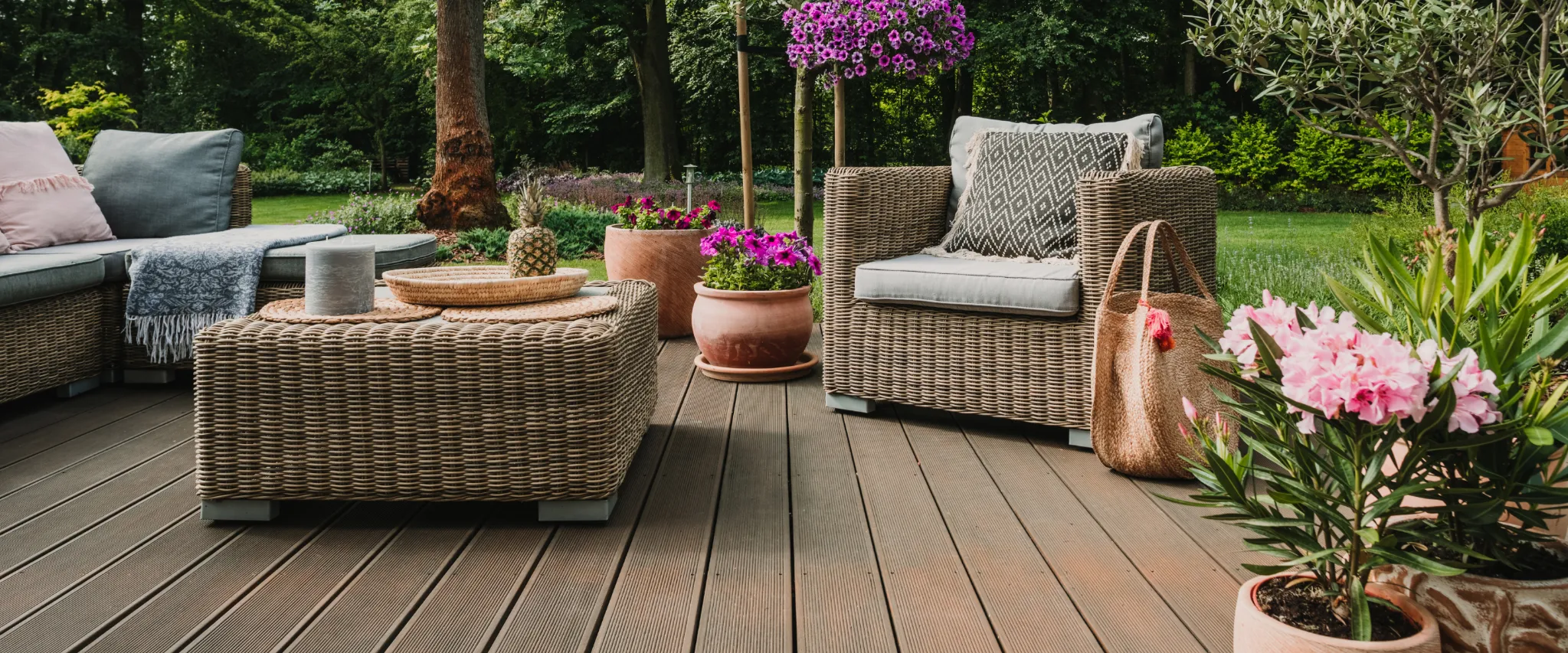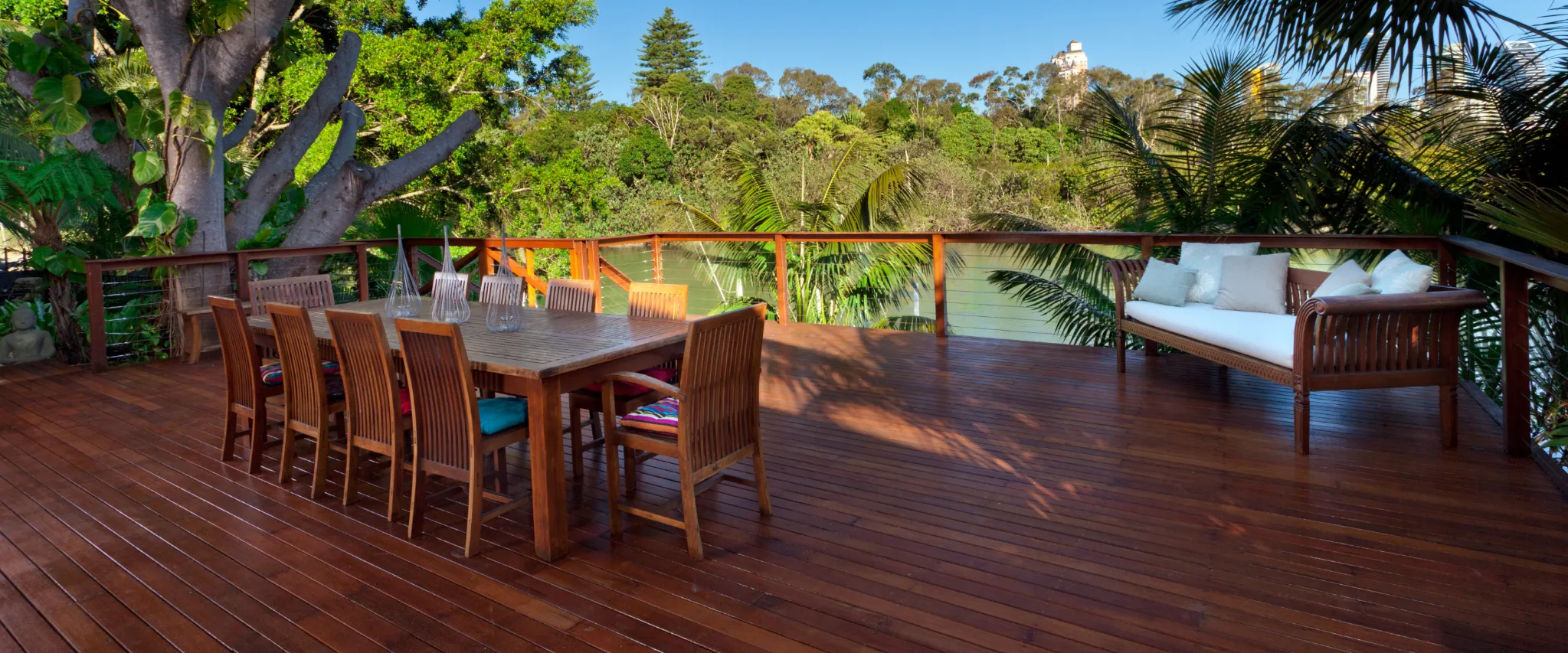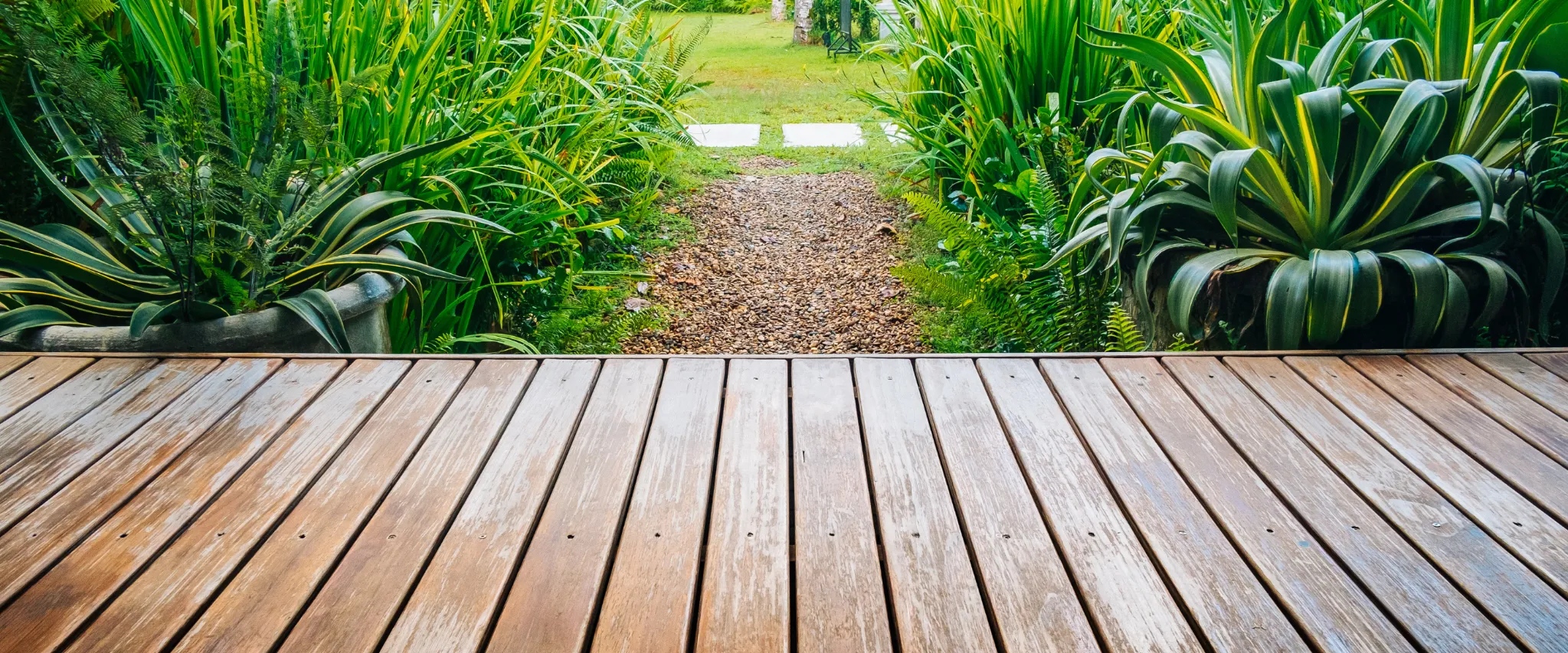Ground-Level Deck Vs Raised Deck
Choosing between a ground level deck and a raised deck can be tough for homeowners. Each type of deck adds beauty and value to your outdoor living space. This blog will compare their benefits, costs, and more to help you decide.
Find out which deck is perfect for you.

Pros and Cons of Raised Decks
Raised decks offer a commanding view and enhance the aesthetics of your outdoor space. However, they tend to be more expensive to install and maintain compared to ground-level decks.
Appearance and View
Raised decks offer a unique view of your outdoor spaces. They let you see over fences and railings to the yard beyond. This elevated perspective can make your outdoor living space feel more open.
It links the indoor and outdoor areas smoothly.
Ground level decks blend with the landscape, offering a seamless transition between home and garden. They keep things cozy and integrated with surrounding nature. You won’t have steps or elevation changes, making the flow from inside to outside gentle and easy.
Cost and Installation
Moving from the visual appeal to practical matters, installing a raised deck can be more costly. This is due to the need for additional structural support and materials such as stairs and railings.
Local building codes might also demand more strict requirements because of the elevated structure, which can add to the price. Raised decks often require proper permits before construction starts.
The cost escalates with increased elevation.
Ground-level decks are usually cheaper and easier to install than their elevated counterparts. They don’t often need stairs or railings unless local building codes say otherwise. Ground level decks offer smoother transition between indoor and outdoor spaces without needing significant structural additions.
Builders can ensure proper drainage with less effort, avoiding moisture damage issues common in raised decks. These factors make ground-level options attractive for those seeking a low-profile yet functional outdoor living space.
Pros and Cons of Ground-Level Decks
Ground-level decks offer easy accessibility and can be safer, especially for families with small children. They also generally require less maintenance compared to raised decks, making them a practical choice for homeowners looking for low-maintenance outdoor living spaces.
Accessibility and Safety
Ground-level decks offer easier access and create a smooth transition from indoor spaces to outdoor living areas. They are ideal for homeowners with mobility challenges or small children, as they do not require stairs that can present hazards.
This accessibility ensures everyone can circulate freely and safely, making the backyard more enjoyable.
Safety considerations for ground-level decks are fewer than those for elevated structures because they often don’t need railings. However, building codes may vary by location, so it’s still vital to check local requirements.
Ground-level decks also allow for seamless integration into the surrounding landscape, enhancing safety without sacrificing style.
Accessibility enhances safety and enjoyment in outdoor spaces.
Maintenance and Durability
Ground-level decks generally require more maintenance due to their proximity to the ground, making them more susceptible to moisture and rot. This can lead to ongoing upkeep requirements, potentially increasing costs over time.
Conversely, raised decks are usually more durable as they are built above ground level, minimizing exposure to moisture and reducing the risk of decay. Elevated decks also tend to have a longer lifespan compared to ground-level options.
When considering the maintenance and durability of your deck, it’s essential to factor in these differences between ground-level and raised structures. Understanding these key points will help you make an informed decision when choosing the right deck for your home.

Top Deck Manufacturers
Choosing a reliable manufacturer is essential for quality, durability, and style. Here’s a list of top deck manufacturers and what they offer:
- Trex Company: Known for eco-friendly composite decking, providing weather-resistant and low-maintenance solutions for versatile outdoor design.
- Fiberon: Offers high-performance wood-alternative decking dedicated to sustainability and stylish outdoor living enhancements.
- TimberTech: Delivers natural wood-like aesthetics with premium durability, focusing on innovative materials and refined craftsmanship.
- Deckorators: Specializes in composite decking with elegant details to elevate outdoor spaces through unique and bold designs.
- AZEK Building Products: Features advanced polymer decking for high durability and minimal upkeep, perfect for modern outdoor aesthetics.

Ground-Level Deck vs Raised Deck: FAQs
A ground-level deck has low height, often built directly on or slightly above the ground. A raised deck, however, uses vertical space and can be built over uneven terrain.
Yes! Both types of decks can enhance your home’s exterior and increase its overall value. The perfect deck for you depends on key factors like square footage and your home’s style.
Typically, only raised decks require railings due to their height off the ground. Ground-level decks have a low profile and may not require them.
Composite decking used in either type offers low maintenance advantage but poor drainage could affect a ground level more than a raised one due to its proximity with earth surface.
Why Choose Our Professional Team?
Our team boasts years of expertise in delivering top-tier decking services that exceed expectations. With a commitment to quality craftsmanship and attention to detail, we ensure every project we undertake stands the test of time.
Ready to start your deck building project? Contact us at (402) 369-5724.
